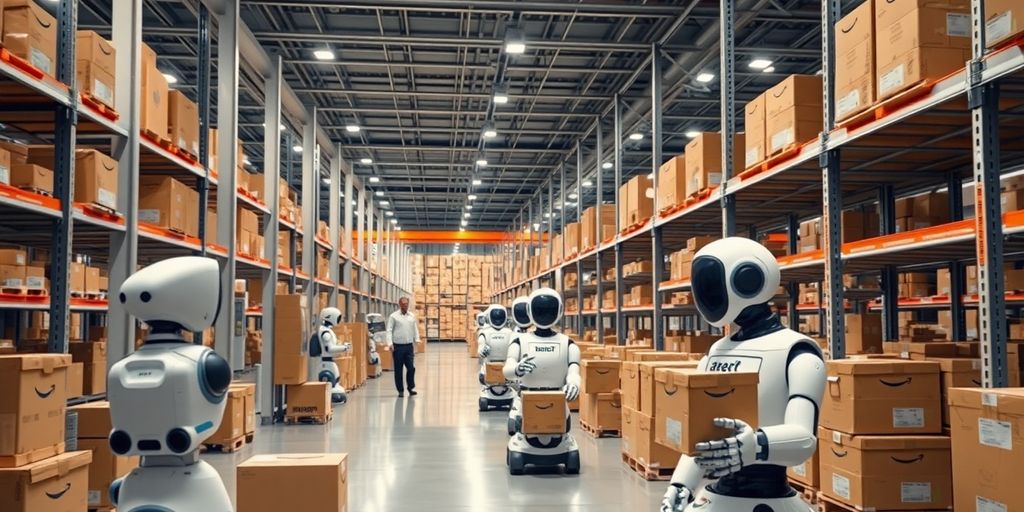Amazon has recently announced the development of a new robotic assistant named Vulcan, designed to enhance efficiency in its fulfillment centers. While this innovation promises to streamline operations, it has sparked discussions about the implications of advanced technology in the workplace and its potential impact on employment.
Key Takeaways
- Amazon introduces Vulcan, a robot designed to assist in warehouse operations.
- Vulcan features tactile and visual sensors for item categorization and packing.
- The technology aims to improve efficiency while working alongside human employees.
- Concerns arise regarding the future of jobs in light of increasing automation.
The Rise of Automation in Warehousing
In recent years, automation has become a significant trend in various industries, particularly in logistics and warehousing. Amazon, with its extensive network of fulfillment centers, is at the forefront of this movement. The introduction of Vulcan marks a pivotal step in the company’s ongoing efforts to innovate and optimize its operations.
Vulcan is equipped with advanced sensors that allow it to:
- Perceive: Identify different items using visual recognition.
- Categorize: Sort items based on size, shape, and other characteristics.
- Pack: Efficiently package items for shipment, reducing manual labor.
This technology is designed to work collaboratively with human workers, enhancing their productivity rather than replacing them. Amazon emphasizes that Vulcan is intended to complement the workforce, allowing employees to focus on more complex tasks.
Implications for Employment
Despite Amazon’s assurances, the introduction of robots like Vulcan raises important questions about the future of work. As automation becomes more prevalent, many fear that jobs may be at risk. Elon Musk, a prominent figure in the tech industry, has previously warned that advancements in artificial intelligence could lead to a future where human labor is no longer necessary.
While Amazon claims that Vulcan will not replace human workers, the reality is that increased efficiency often leads to reduced labor needs. This has sparked a broader conversation about the ethical implications of automation and the responsibility of companies to their employees.
The Future of Fulfillment Centers
Currently, Vulcan is operational in Amazon’s fulfillment centers in Spokane, Washington, and Hamburg, Germany. The company plans to expand the use of these robots as they learn and improve their capabilities. The goal is to make package fulfillment quicker and more efficient, ultimately enhancing the customer experience.
As Amazon continues to innovate, it remains to be seen how these advancements will shape the future of work in the retail and logistics sectors. The balance between technological progress and ethical considerations will be crucial as society navigates this new landscape.
Conclusion
Amazon’s development of the Vulcan robot represents a significant leap forward in warehouse automation. While the technology promises to improve efficiency and streamline operations, it also raises critical questions about the future of employment in an increasingly automated world. As the company moves forward, it will be essential to address these concerns to ensure a balanced approach to innovation and workforce welfare.
Sources
- Amazon quietly develops creepy new technology, TheStreet.

Founder Dinis Guarda
IntelligentHQ Your New Business Network.
IntelligentHQ is a Business network and an expert source for finance, capital markets and intelligence for thousands of global business professionals, startups, and companies.
We exist at the point of intersection between technology, social media, finance and innovation.
IntelligentHQ leverages innovation and scale of social digital technology, analytics, news, and distribution to create an unparalleled, full digital medium and social business networks spectrum.
IntelligentHQ is working hard, to become a trusted, and indispensable source of business news and analytics, within financial services and its associated supply chains and ecosystems











